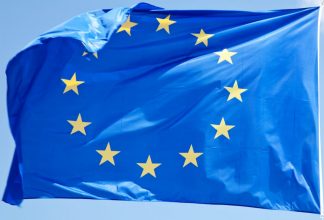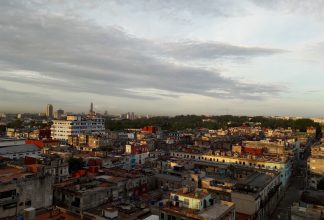Proposals to the European Union regarding the Agreement and Relations with Cuba

Letter #1 by Association for Press Freedom.
In July 2019, Civil Rights Defenders invited Cuban human rights defenders and civil society organisations to contribute with texts on how the European Union should work towards Cuba. The first contribution comes from the Association for Press Freedom.
Proposals of the Association for Press Freedom to the European Union regarding the Agreement and Relations with Cuba
What should be the objectives of the European Union towards Cuba during the implementation of the agreement and how to get there? Concrete proposals:
The EU objectives, must be based on the points indicated in the Common Position: respect for human rights and democracy. Although the Position was withdrawn, this one must be retaken and applied in its political relations with Cuba. With the approval by the European Parliament of the EU-Cuba Agreement, the Common Position came to an end, but the Cuban government continued with the same policy of disrespect for human and fundamental rights; which at this point has worsened. This is evidenced by the systematic attacks on civil society individuals and, specifically, against the independent press.
How should the European Union and the member states relate to Cuban government entities, agencies, institutions, universities, and companies, for example? Could they achieve something in terms of cooperation with them, and what are the risks of that cooperation?
The relations of the EU and its member states with the state entities in Cuba, and presumed non-governmental entities (keep in mind that there is no separation of powers on the island), must be based on the state’s commitment to set aside political segregation and on the respect for the provisions of the Universal Declaration of Human Rights.
Financial and economic cooperation could be carried out in relation to the capital exposed to risks.
Currently Cuba has a Foreign Investment Law¹, which has the purpose of attracting new foreign capital. However, the policy on employment is conducted by the Cuban employment agency, that select its personnel in accordance to the prerequisites determined by the Cuban Communist Party. Hence, the investor does not have a reliable and trained staff that can ensure the amount invested. Also, the advisors are not legally liable with the foreign company.
The implementation of Chapter III of the Helms-Burton Act by the US government is a reality to be considered by foreign capital,2 by both current partners, and by those who intend to invest in the island. The Helms-Burton Act, imposes a series of sanctions on companies around the world, that carry out businesses with confiscated goods and without due payment for the seized, with the Cuban government after Fidel Castro took on power in 1959, and a foreign ideology contrary to the traditions and history of Cubans was implemented.
In regard to universities, and their possible cooperation at the national and international level, a selective process must carry out, without stigmatisation, and with equal opportunities for those who are pro-government and for those who want changes towards democracy, this would bring positive results.
For example, the presence of official and independent journalism; where each of them can participate with their themes in national and international events, without independent journalists being repressed or excluded.
The adjustments or amendments to the Migration Law in Cuba opened up the possibility for Cubans to be able to enter and leave the country; but today the application of its articles “regulates”, so that many Cubans cannot leave the national territory3, preventing the cultural, social, technological and political globalisation that is necessary, so that in essence the Cuban youth does not escape from the country in search of better living solutions.
What could be achieved by cooperation between the European Union and the organisations of Cuban society linked to the government and loyal to the Communist Party of Cuba? What are the risks?
Such cooperation would acknowledge these organisations as the only organisations (which are already registered and legalised by the government) with rights to exercise the functions that the Cuban State legally grants them.4 Consequently, the government would continue to project itself against the true civil society, which, by not being recognised, is considered illegal and can at any time be repressed by law. The acknowledgement that it has internationally achieved would be broken by the position of civil society merged with the government.
How could the institutions of the European Union and the States cooperate with a Cuban civil society that openly promotes democratisation and respect for human rights? And how could they promote cooperation between that Cuban civil society and the European civil society?
Establishing cooperation relations and making it visible. By helping in the dissemination of human rights violations, which in our organisation (APLP) makes through reports and communications regarding the serious and emergency situations faced by journalists. By inviting civil society, and especially human rights defenders, to their embassies in order to know the reality of Cuba today. By holding workshops, where civil society is invited to participate.
What should the European Union focus on in the political dialogue, in the cooperation dialogue and in the commerce sector with the Cuban government? How could Cuban civil society contribute to the process of implementing these parts of the agreement?
The EU should focus on the issue of respect for human rights, requesting to harmonise international and national legislation, and the ratification of human rights pacts. By requesting the government to create a permanent human rights Commission that monitors constitutionally recognised human rights in accordance with the Paris Principles; and with the fulfilment of its commitments in relation to the Universal Periodic Review.
Within the trade sector, the situation of insecurity for foreign capital must be considered. The State keeps up, and thus projects itself, as the owner of the properties5. With the new government policy, property registries in Cuba are prohibited from certifying registered properties before the 1970s. We have a legislation attached to the government and the ruling party with a socialist ideology that defends at all costs, above any other interest.
European governments that have not ratified the agreement should not do so, as a sign that they are not in favour of the island’s government policy.
It is not possible to think that any of the 28 members of the EU believe that the NGOs that the government accepts and imposes are independent in any way.
After the election by General Raul Castro of Miguel Diaz-Canel as ruler, repression and persecution have increased; managing to neutralise part of the civil society that, frightened, has been silenced and imprisoned.
The European Union should always keep in mind that in Cuba there is a tyranny of the left with a terrible history of human rights violations.
Havana, August 26, 2019
Signatories: Julio César Álvarez López, Amarilis Cortina, Rey Odalina Guerrero Lara, José Antonio Fornaris Ramos, Miriam Herrera Calvo, y Miguel Saludes García
References:
1. Law no.118. Foreign Investment Law.
2. Chapter III of the Helms-Burton Act.
3. Migration Law. DECREE-LAW No. 302 AMENDING ACT No. 1312, “MIGRATION LAW” OF
SEPTEMBER 20, 1976 Article 25: Any person who is in the national territory, may
not leave the country while in any of the following assumptions: h) When for
other reasons of public interest, determined by the authorized authorities. i)
Failure to comply with the requirements of the Migration Law, its Regulations
and the complementary provisions to leave the country”.
4. Act 54 of 1985. Law of Associations. Resolution 78 of 1987, amending law 54.
5. Decree Law 227 of January 8, 2002. State Heritage Law.
About the Association for Press Freedom
The Association for Press Freedom (APLP) is a non-profit organisation founded in 2006. Its work focuses on freedom of press and freedom of expression, and the protection of journalists and their professional interests.

